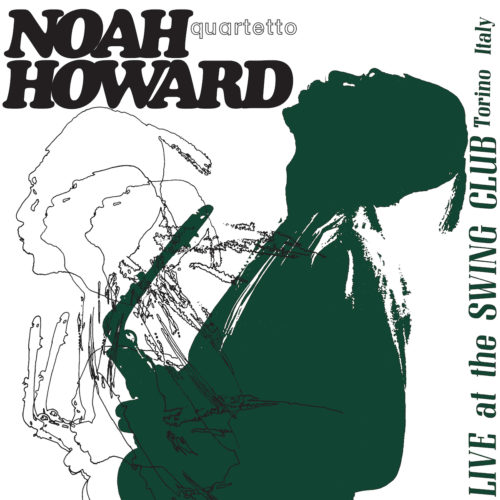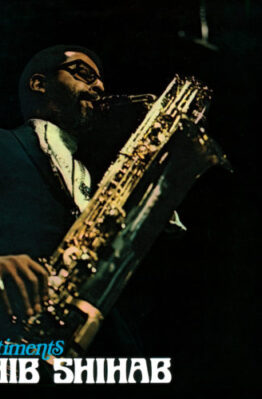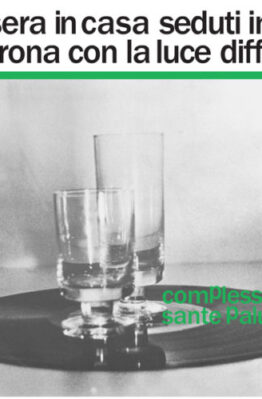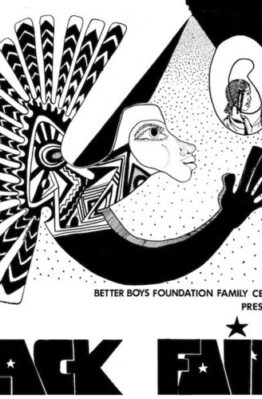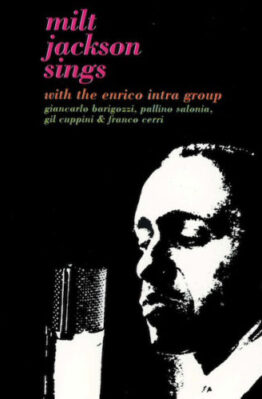Description
Cat#:
LABEL: seriE.WOC, Italy
FORMAT:
LP / EWOC-LP008 (JAN: 4560312319154)
CD / EWOC-CD008 (JAN: 4560312319260)
ARTIST: NOAH HOWARD QUARTETTO
TITLE: LIVE AT THE SWING CLUB TORINO ITALY
Originally released as: Altsax Records / R International(SNIR25055, 1974 Italy)
Lineup:
Noah Howard (Alto Sax, Bells, Tambourine)
Michael Smith (Electric Piano, Acoustic Piano)
Bob Raid (Bass) Courtesy of Kewala Records
Noel McGhie (Drums) McGhie plays on Hollywood drums
Credit:
Recorded at the Swing Club Torino Italy April 20, 1974
Remastered at Clarence Studio, Paris, France
seriE.WOC thanks to:
Lieve Frasen for believing in this project, Gerardo Frisina for archive advice, Sir Tony Higgins for liner notes.
Tracks
A1. PARIS DREAMS (N. Howard)
A2. LECKE (N. Howard)
B1. MARDI GRAS (N. Howard)
Notes
Although alto saxophonist Noah Howard never quite managed to garner the reputation that several of his more well-known playing partners did, to those ‘in the know’, he was every bit as essential and extraordinary as Archie Shepp and Albert Ayler. A player and composer of direct and emotionally charged music, Howard’s career saw him bear witness to some of the most tumultuous periods in jazz, giving voice to the cry for freedom – both musical and political – that characterised the late 1960s and beyond.
Noah Howard was born in New Orleans on 6 April 1943 and his first musical experiences were, like many black Americans, in church. He first tried his hand at trumpet but was frustrated with its apparent limitations and so he switched to saxophone falling under the early influence of New Orleans saxophonist Pony Poindexter, who had played with Billy Eckstine, Charlie Parker, T Bone Walker and Nat King Cole. Radio was also a big source of inspiration to Howard, and shows such as Symphony Sid exposed him to Ellington lynchpin Johnny Hodges as well as Bird.
When he was a teenager Howard moved to the west coast and underwent something of an epiphany that was to change the course of his life: he encountered the music of John Coltrane. It was after hearing Trane that Howard knew what he must to.
Following a brief spell in the military, Howard lodged in San Francisco, taking lessons from saxophonist Byron Allen. In 1965 he travelled to New York and, after failed attempts to get into the reed sections of the Basie and Ellington bands, began to work within the bourgeoning ‘New Thing’ jazz scene with players such as Archie Shepp, Sonny Sharrock, Pharaoh Sanders and Sun Ra. Speaking in January 2006, Howard described his time with Ra and musicians he encountered: “He taught me a lot of things. One minute we would be playing a Fats Waller thing from 1926 and then he’d go flip-flop, and we’d be into space. He trained and helped a lot of guys. Marion Brown played in that band, even Pharoah played in that band from time to time. And Gilmore was a master saxophone player, a monster.” (The Wire)
During his time in New York, Howard became close friends with Albert Ayler. Ayler was the rising star of the free scene and a recording artist for ESP Disks, the label founded in 1964 by lawyer Bernard Stollman (other artist on ESP included Ran Blake, Marion Brown, Paul Bley as well as psychedelic rock acts like The Fugs and Pearls Before Swine). Like many in the free jazz scene, Howard worked New York’s infamous Lower East Side at clubs like Slugs, one of the centres of the new music, and it wasn’t long before Stollman offered him the opportunity to record, following an introduction and recommendation from Ayler himself.
The self-titled debut album, ‘Noah Howard Quartet’, was recorded in January 1966 at RLA Studio in New York and featured Howard on alto alongside Scotty Holt on bass, Dave Grant on percussion and British trumpeter, Ric Colbeck. This was quickly followed by another ESP release, a live recording from October 1966, ‘At Judson Hall’. The album featured two extended pieces, ‘This Place Called Earth’ and ‘Homage To Coltrane’
Following the sessions with ESP, Howard recorded his third album ‘The Black Ark’, for a major label, Polydor, in 1969, but the album remained unissued for two years. Frustrated at the lack of label support, Howard decided to join the jazz exodus to Europe and went to work in France, joining fellow Americans in Paris such as the Art Ensemble of Chicago and former Coltrane and Red Garland sideman, drummer Art Taylor. The audiences and media in Europe were far more welcoming and appreciative that anything he had experienced in the US and, according to Howard, he received more attention in three days that he had in five years in the States.
During his brief time in France, Howard featured on recordings by tenor player Frank Wright (One for John, Uhuru Na Umoja) and Archie Shepp (Black Gipsy, Pitchin Can) before returning to the States in 1970.
In 1971, Howard established the New York Musicians’ Organisation, a musical self help collective that included Ornette Coleman and Sun Ra among its members. A 1972 session at the Village Vanguard was released on LP, featuring Rashid Ali on drums and Frank Lowe on tenor and there were further various appearances on albums by contemporaries throughout the mid 1970s. Following a move back to Paris in 1973, Howard established his own label, Altsax, and the first release, ‘Patterns’, was recorded in the Netherlands with Dutch musicians, super drummer Han Benink and pianist Misha Mengelberg. The mid to late 70s saw Howard travel extensively across Europe and into Africa, recording with a wide range of American expatriates as well as local musicians.
It was in April 1974 that Howard cut the ‘Live at the Swing Club’ in Turin, for Calumet Records. The session features Howard alongside Michael Smith on piano, Noel McGhie on drums and Bob Reid on bass. This was a very busy period for Howard, and he cut a series of albums for a variety of labels including ‘Live in Europe’ (featuring a epic version of Trane’s ‘Olé’), ‘Berlin Concert’, ‘Red Star’ (featuring bebop legend Kenny Clarke), and ‘Schizophrenic Blues’.
In 1977, Howard wrote ‘Message to South Africa’. It was composed the week South African anti-apartheid activist Steve Biko was killed and the 1979 Paris recording coalesced around two key South African-in exile jazz artists: pianist Chris McGregor and bassist Johnny Dyani. McGregor and Dyani had both been founding members of the leading South African jazz group The Blue Notes. They had fled the brutal apartheid regime in 1964, finding sanctuary in Switzerland and the UK.
Howard described this period that saw him travelling, recording and playing, often in Africa, immersing himself in the social and political atmosphere of the time: “I was down in South Africa, I was in Durban and Jo’burg. Moving around and playing. A lot of times I was moving back and forth between Africa and the rest of Europe. I’ve been four times in Dakar, in Senegal – they had a beautiful jazz club there. I used to go down there and hang out. We’re on the inside of this world. But I’m part of this world and the larger world. I’m exposed to the larger world. South Africa is deep. They had all these great musicians down there” (The Wire, 2006)
Howard briefly lived in Nairobi and in the early 80s explored funk and R&B sounds within his music. He opened up his own club and studio, Noah’s Ark, in Brussels, a city that became his home. Releases waned during the late 80s and early 90s abut he picked up toward the end of the 90s and his output, both as leader and featured player, was prodigious and several featured pianist Bobby Few and vocalist Eve Packer. Among his last albums were ‘Desert Harmony’, ‘Transit Mission’ and ‘Voyage’.
A career overview ‘The Eye of The Improviser’ was released in 2003 that included material spanning Howard’s career and is well worth picking up as an introduction to an endlessly curious and inventive musical force.
Noah Howard died during a holiday trip to the south of France on 10 September 2010.
